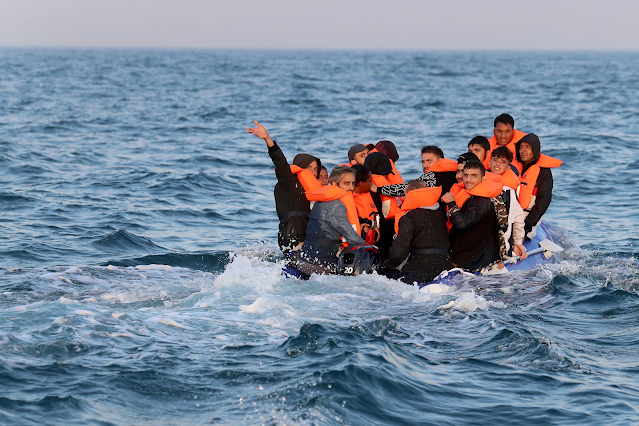Stop the boats: The government's latest catastrophe policy, made famous by a football show
The chaos and confusion surrounding Match of the Day has brought attention to a few important topics, among them free speech, impartiality and the new Illegal Migration Bill
It has taken the meltdown of the world's most famous sports programme for us to be more aware of it, so what exactly are the government's new set of laws aiming to 'stop the boats' coming across the English channel?
More or less, this is how it goes: In early March the UK's home secretary announced the new plan for illegal arrivals into the UK; a law that would allow them to be immediately detained and deported either back to where they came from, or to the UK government's idea of a 'safe' country. She specifically referenced Rwanda, with whom there is already a much-maligned agreement to deport immigrants to while they wait for their asylum claims or if their claims fail- although luckily no one has been sent there yet due to court challenges against the scheme.
When outlining the laws, Suella Braverman used a tone such as 'unnecessary, illegal journey...people who game our system...enough is enough'. Without comparing it to 1930's Germany, since I don't know a lot about it, the language is firm and uncompassionate. So no, she didn't pull any punches and there were none of the attempts we have seen by others to soften the tone or to word it more carefully- it was as direct as possible and such an approach often tends to divide- it was Donald Trump style language.
To justify this hard stance, the government often uses the excuse that they take in a lot of refugees already- this isn't really true. For our size, we have comparatively few asylum applications and as a result have less refugees in proportion compared to most European countries- we rank 14th in Europe for asylum applications per head of population and below other major European countries like Germany, Spain and France. They don't make up very much of the demographic- as of 2022, refugees and asylum seekers made up 0.54% of the population.
There is no denying that the journey is very risky, but despite this 45,000 people made the journey across the channel in 2022, accounting for just under half of last year's 90,000 asylum seeking individuals. However, most people that come to the country, contrary to popular opinion, don't actually seek asylum- as of the latest statistics, only 6% of immigrants seek asylum when they come over, so channel crossings would therefore account for less than 3% of all immigrants.
There's an important question that hasn't been answered though: Why don't they just stay in France? Well, actually, most of them do. France receives almost twice the amount of asylum applications that the UK does. A recent survey by the aid group Médecins Sans Frontières showed that out of those who make the crossing around half do so because of family ties to the UK, and so are looking to join up with them over here. The reason they undertake this illegal journey is because there are no UK asylum processing centres abroad, and therefore, for people in their situation, there is no legal and regular way of them getting to the UK. Another problem is that the conditions in northern France are awful- refugees stay in migrant camps- the main one being the Jungle near Calais, in run down tents with minimal food and no healthcare, despite the best efforts of volunteers. So although France may seem safe to us, the reality is quite different.
As mentioned previously, the UK, for a country of our size is at the lower end in regards to how many refugees we welcome in. If refugees just stayed in the first country, the UK obviously wouldn't take any, as we're not surrounded by any countries that are generally considered unsafe. But then, the countries that are entry points to them, like Italy, Greece, Spain and Turkey would be unable to cope with the amounts of people. These countries still house large amounts of refugees- Italy has taken over half a million in the last few years and Turkey hosts the most refugees in the world, 4 million. The internationally-agreed on refugee convention also never says that refugees must stay in the first safe country, and they can make a legitimate claim for asylum having passed through other safe countries. It's a responsibility that needs to be shared across Europe.
The government's policies in a way contribute to their own narrative. Multiple times during the policy announcement, Suella Braverman floated figures around the economic cost of keeping asylum seekers in hotels and in the country, saying the asylum system is overstretched. It is this very system that keeps refugees in hotels on meagre benefits (7 pounds a week) and prevents them from getting a job and contributing to the economy. She's right- the system is broken- and she's planning to keep it broken and claim that someone else broke it.
The plan is to deport these refugees back to their country of origin, or, if unsafe, then a safe third country. Said safe country happens to be Rwanda- pretty safe right? A dictatorship, no freedom of speech, no opposition, no LGBTQ+ rights...You get the idea. Not to mention ongoing civil war in parts. If this is the UK's government's idea of a safe country, then there are some serious problems here.
Maybe it needed a sports show drama to get us talking about all this.




Comments
Post a Comment